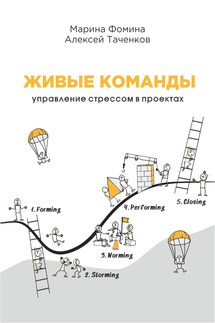Staying Strong - страница 14
Another example of Franklin's planning ahead was his involvement in the creation of the United States Constitution. In 1787, Franklin was one of the delegates to the Constitutional Convention, which was tasked with drafting a new constitution for the United States. Franklin recognized the importance of planning ahead for the future of the country, and he played a key role in shaping the final document. He was instrumental in drafting the compromise that created the bicameral legislature and helped to ensure that the new government would be strong and stable.
Franklin's planning ahead abilities also extended to his inventions. He was known for his innovative ideas and inventions, many of which were ahead of their time. For example, he created a lightning rod that protected buildings from lightning strikes, and he invented bifocal glasses that allowed people to see both near and far.
Overall, Benjamin Franklin was a master at planning ahead. His ability to think ahead and anticipate future needs and challenges helped him to achieve great success in his personal and professional life, and his legacy continues to inspire generations of people to plan ahead for their own futures.
"An empty stomach is not a good political advisor." – Albert Einstein
This quote by Albert Einstein means that hunger can cloud one's judgment and decision-making abilities. When a person is hungry, they may become desperate and make choices that they wouldn't make if they were thinking more clearly. Therefore, this quote suggests that it is important to address basic physiological needs before making important decisions.
3. Adequate sleep
Adequate sleep is crucial for promoting physical health through self-care.
Getting enough sleep helps our bodies repair and rejuvenate, improving our immune function, hormone regulation, and overall physical performance. It's recommended that adults aim for 7-8 hours of sleep per night, but the amount of sleep needed can vary depending on individual factors such as age, activity level, and overall health.
In addition to the amount of sleep, the quality of sleep is also important. Poor sleep quality can lead to fatigue, decreased cognitive function, and a weakened immune system. To improve the quality of your sleep, it's important to establish a regular sleep schedule, create a relaxing bedtime routine, and create a comfortable sleep environment.
Other tips for promoting good sleep include avoiding caffeine and alcohol before bedtime, limiting screen time before bed, and engaging in relaxing activities such as meditation or reading. If you're having trouble sleeping, it's important to talk to your healthcare provider to rule out any underlying health conditions that may be affecting your sleep.
Overall, adequate sleep is essential for promoting physical health and well-being through self-care. So, prioritise getting enough high-quality sleep and your body will thank you!
Here are some steps to prioritise adequate sleep for promoting physical health through self-care:
Set a regular sleep schedule: Try to go to bed and wake up at the same time each day to regulate your body's internal clock.
To establish a consistent sleep routine, you can take the following measures:
• Determine how much sleep you need: The National Sleep Foundation recommends that adults get between 7-9 hours of sleep per night. Determine how much sleep you need and set a bedtime and wake-up time that will allow you to get that amount of sleep.






